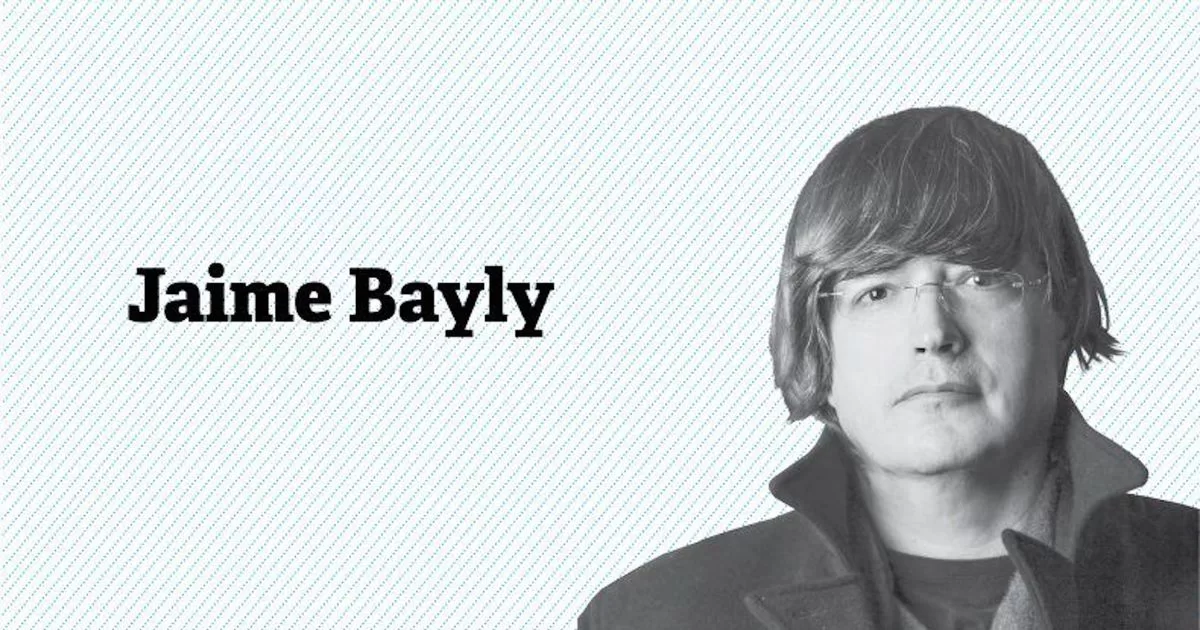When one of your best friends dies, at just fifty-four years old, and you remember that you are fifty-eight years old, you understand that death is waiting for you lurking around the corner and that you will not be able to dissuade it by saying nice golden words to it. or inspired speaker.
Precisely because you have little life left, because you will have to die more or less soon, because the best is behind you, it is urgent and urgent not to waste time and undertake the pending creative tasks, the books to be written.
When you remember that your friend who just died fell ill twelve years ago and since then could no longer sing, a cruel and incurable illness that took away the well-earned happiness of composing music of excellence, memorable songs, works of art that will survive him , condemning him to the harshest punishment that a singer can suffer, that of remaining silent, without voice, without being able to sing, you understand that you enjoy a blessed lot because you can still write, you can speak, you can express yourself artistically without restrictions, to the fullest, enjoying of a freedom that the enemy armies of time and disease have not yet decimated, but that more or less soon they will assault.
Precisely because you have so many stories to tell, so many novels to write, you must begin as soon as possible to tell them, to write them, to live them at the same time that you write them, to fable them at the same time that you evoke them, to give them life at the same time as your characters. they get angry and talk to you with wayward and even ribald words, and then, trying to capture the moment, setting fire to the vast desolate meadows of boredom and frivolity, narcissism and mediocrity, with the sacred fire of art, write once and for all. always those fucking novels that torture you day and night, the novel of the dictators, the novel of the comedian who fell from the ledge, the novel of the actor who threw himself from the balcony, the novel of the sacred family, of your sacred family, which It is, of all, the ones that instill the most fear in you, the fear of your mother’s holy wrath.
When you remember that your friend’s father, the musician who just died, was also an artist and also died young, before turning fifty, and that he was a close friend of your first wife’s father, and when you think you are seeing what you have written in one of your novels, the hallucinatory moment when your wife’s father decided to light a bonfire and throw his entire past into the flames, all the evidence that he was him, burning in a self-destructive and redemptive feast his papers, his identity documents, his birth certificate, his baptismal certificate, his school diplomas, his confirmation certificate, his electoral book, his military book, his marriage certificate, his driver’s license, everything that could prove that he was him and it had been him for thirty years, and when you remember that immediately, having reduced his past to ashes, your wife’s father, reborn from the fire, gave his German car, a beetle model, to your friend’s father, the musician who ended up of dying, you understand that in each of your novels you have lit an inexorable fire and you have thrown into the flames your entire past, your old identity, your sense of honor, your good reputation, the convenient family alliances, the friendships, the happy loves and crossed loves, everything in the fire, everything reduced to ashes in the name of art, or of saving oneself through art, with which, perhaps without realizing it in such a patent way, you yourself did what your father-in-law did, that is, set fire your past and emerge unscathed from those flares, transformed into another person, perhaps a better person.
Precisely for this reason you have to give friends and relatives everything that can be given, you have to know how to get rid of the heavy burden of things, you have to enjoy when you give things that you could keep for yourself, perfumes, ties. , watches, shoes, all the unnecessary luxuries of this world that, far from giving us happiness, create dependencies, create ties and servitudes, because, as the singer told you when he took out his watch and gave it to you on a television program , the problem with having a very expensive watch is that you no longer own the watch, because the watch owns you.
When you remember that your friend, the musician who has just died in silence, had the courage, the passion, the lucidity and the bullfighting courage to dare to be a musician, only a musician, fully a musician, in a country and in times in which Being a musician was a certain sentence to poverty, a ticket with no return to a life of deprivation and humiliation, an apparently self-destructive journey to the darkest and most icy areas of human existence, a descent to the murky bottom of the seas where no one manages to survive, and then you remember that, against all odds, with the courage of a conqueror and the intrepidity of a pirate, your friend the musician managed to succeed, and succeed greatly, and live only as a musician, fully as a musician, carrying their songs to other cities, to other countries, rising, rising, spreading happiness in its purest form, happiness in addictive capsules called songs, you understand that life lacks meaning or flight or beauty when those who live it hide from the risks , he shrinks and retreats in the face of danger, comfortably secures a predictable, flat and mediocre future and shrinks or is afraid of the possibility of finding his voice, and then his identity, and then his singular path, and then giving himself passionately and without reservations to the act of fulfilling the destiny for which he was born.
Precisely for that reason, because the musician who has just died faced the most powerful dragons and defeated them all, fulfilling his admirable human destiny, and because, by composing music, by singing his songs, he was completely happy and made us completely happy. , and because he was not poor or miserable or unhappy or a loser, the onerous tributes that he would supposedly end up paying for the insolence of daring to be a musician in a country with no knowledge and little culture, but on the contrary, he was loved and acclaimed, honored and revered, heard and danced, celebrated and applauded, is that now, when the musician has departed so suddenly, leaving us desolate, we must remember that the best life lived is the one that dares to light the sacred fire of art, which is the incorruptible beauty that will not die.


